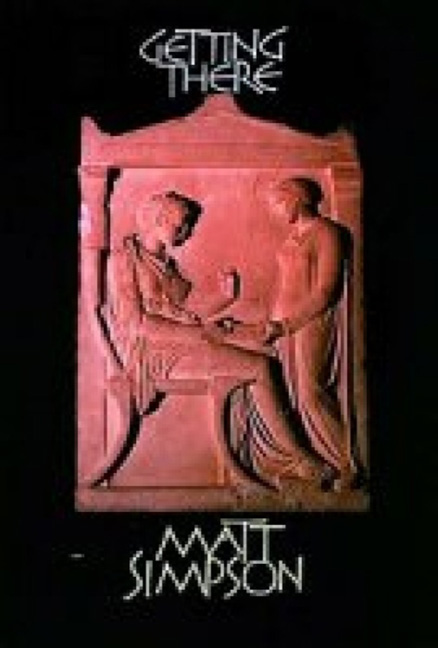Book contents
- Frontmatter
- Dedication
- Contents
- Acknowledgements
- Miscellaneous Frontmatter
- Another Look
- A Great-Grandfather
- A Great-Grandmother
- Grandfathers
- Grandmothers
- Birthplace
- My Mother and her Two Brothers
- Their Wedding Photograph
- Sticks and Stones
- Hickory Dickory
- Jolson Sings
- First Day at the Grammar School
- Catching an Old Film on Television
- Days of TEFL
- Snap
- May 1997
- Emma at Seven Months
- Somewhere Down the Line
- No Joke
- For the Man I Used to Go Fishing With
- Fishing in the Grounds of a Therapeutic Community
- Not at his Best
- Dead of Winter
- ‘Committal’
- The Dovecote
- The Idea of Order at Hunts Cross
- Jupiter Optimus Maximus
- Squeezing a Poem out of Me
- Fragment
- Something for Gael Turnbull on his Seventieth Birthday
- Making an Arrangement
- An Invitation to Breakfast from Sydney Smith
- Hiroshima
- Sez I Sez I in Stephen's Green
- Seventh Heaven
- At Drumcliff in 1997
- Getting There
- Mnemósynon
- Moonlight on Leros
- Olives
- The Quality of Greek Light
- Scottish Waiter Bringing Squid
- Funerary Monuments, Aegina
- Taking the Hexameter a Walk
- Moonlight on Aegina
- Whalewatching – Vancouver Island
- Seventh-Storey Heaven
- Sarah Biffin
- Ancestors
- In the Dock Canteen
- On Tape at the Old People's Home
- Winter Solstice 2001
- A Long Way from Home
- Publisher's note
Ancestors
- Frontmatter
- Dedication
- Contents
- Acknowledgements
- Miscellaneous Frontmatter
- Another Look
- A Great-Grandfather
- A Great-Grandmother
- Grandfathers
- Grandmothers
- Birthplace
- My Mother and her Two Brothers
- Their Wedding Photograph
- Sticks and Stones
- Hickory Dickory
- Jolson Sings
- First Day at the Grammar School
- Catching an Old Film on Television
- Days of TEFL
- Snap
- May 1997
- Emma at Seven Months
- Somewhere Down the Line
- No Joke
- For the Man I Used to Go Fishing With
- Fishing in the Grounds of a Therapeutic Community
- Not at his Best
- Dead of Winter
- ‘Committal’
- The Dovecote
- The Idea of Order at Hunts Cross
- Jupiter Optimus Maximus
- Squeezing a Poem out of Me
- Fragment
- Something for Gael Turnbull on his Seventieth Birthday
- Making an Arrangement
- An Invitation to Breakfast from Sydney Smith
- Hiroshima
- Sez I Sez I in Stephen's Green
- Seventh Heaven
- At Drumcliff in 1997
- Getting There
- Mnemósynon
- Moonlight on Leros
- Olives
- The Quality of Greek Light
- Scottish Waiter Bringing Squid
- Funerary Monuments, Aegina
- Taking the Hexameter a Walk
- Moonlight on Aegina
- Whalewatching – Vancouver Island
- Seventh-Storey Heaven
- Sarah Biffin
- Ancestors
- In the Dock Canteen
- On Tape at the Old People's Home
- Winter Solstice 2001
- A Long Way from Home
- Publisher's note
Summary
1.
press-ganged drunks who woke in Bully Roberts’ hold
or one-eyed Captain Crow's; who, at slack water when winds veer
and gulls go quiet, watched the wind-milled heights of Liverpool
wave them away; slaving men who heard at dusk
all Africa dance, pig-tailed bucks who ransacked Calabar,
clambered out of Black-filled holds, sweat-drenched, and felt
the breeze clamp shirts ice-cold against them, winds set fair
for Kingston, sugar, rum, dragging with them wakes of shark.
2.
And one in particular – not for any merit (walking upright
is a trick of walking of decks) and not for vices (common
in men like us) – he's singled here for knowing goodness,
telling it as such. When booze unselfed him to a gentler man
he spoke of love with love, enough to show
how heart and grace might help men bear the sky, the sea.
He talked of Kitty Wilkinson, and how this woman put
such love to work the city thought it had been blessed.
Now blessings go unread, unlooked-for. Indefatigable
and Self-denying, the support of the Orphan, the Fearless
and Unwearied Nurse of the Sick: the Originator of Baths
and Wash-houses for the poor. Blackening words.
But there's a stained-glass window if you look for it,
where sunlight plays with colours like a child, of Kitty's face
among the saints. Please God there's a Heaven
and Kitty Wilkinson's among the meek
turning a creaking mangle like a barrel-organ there.
Kitty Wilkinson: ‘During the 1832 cholera epidemic, without personal or public
resources, she prepared food for the hungry, nursed the sick, cared for unwanted
children and the aged, made her tenement-home available to all, and used her boiler
for the fever-tainted clothing of neighbours; she once worked for 23 hours
continuously at her mangle; in one week she washed over 170 articles all infected
with cholera. From such selflessness sprang the decision of the Town Council, in
1842–46, to provide the first public washhouse in the world.’
PETER HOWELL WILLIAMS: Liverpolitana
- Type
- Chapter
- Information
- Getting There , pp. 66 - 67Publisher: Liverpool University PressPrint publication year: 2001

